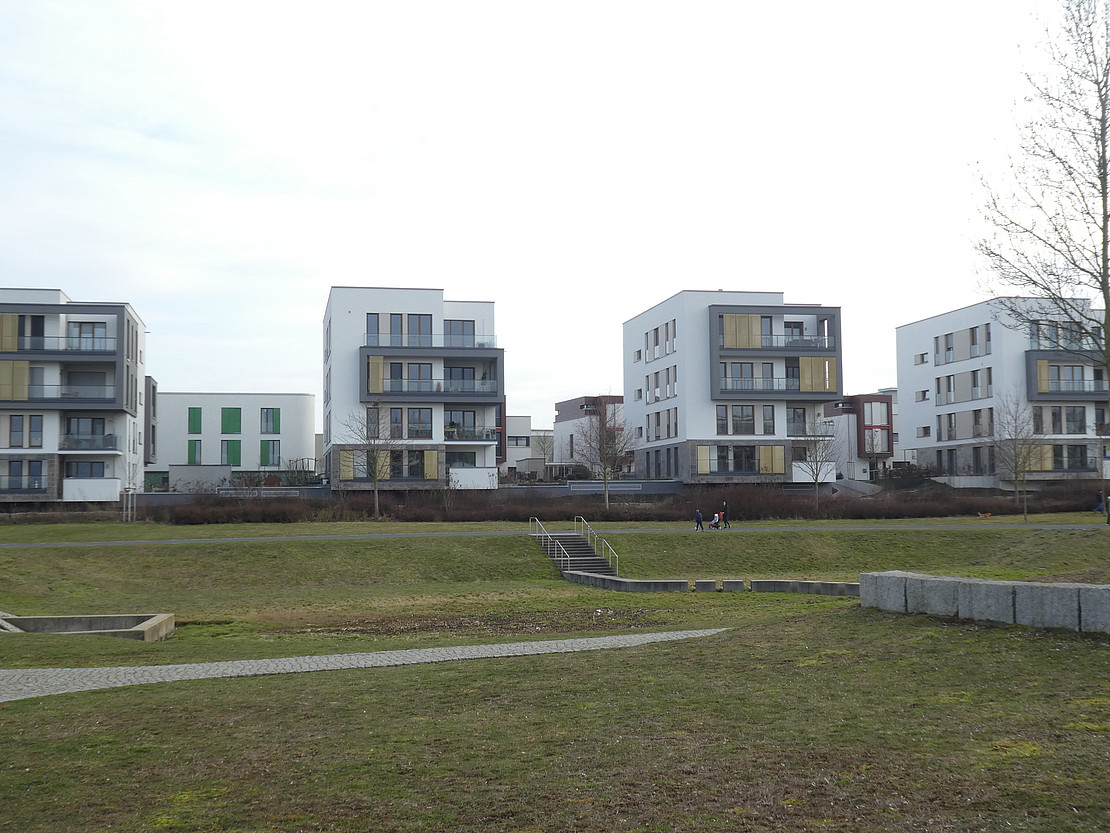This page contains automatically translated content.
Unexplored suburbia: Is the future of cities back in the suburbs?
 Image: Florian Bellin-Harder.
Image: Florian Bellin-Harder."A lot has changed on the outskirts of cities in recent years," explains Prof. Dr.-Ing. Uwe Altrock, Head of Urban Regeneration and Planning Theory and spokesperson for the group. "Rising demand for housing is once again leading to the creation of entire urban districts, but cities want to do this better than in the past. These districts often aspire to be urban and liveable, to conserve resources and to offer functions that are otherwise associated with city centers, such as workplaces or lively town squares. But does that work?"
This is a key question for the new Research Group. What future of living and coexistence is emerging in the new neighborhoods? Will they work, and if so, what will life be like there? Or will reality force us to cut back on the grand plans? The German Research Foundation (DFG) is funding the Research Group "Urban Expansion in Times of Reurbanization - New (Sub-)Urbanity" under the direction of the University of Kassel with an estimated 3.3 million euros, as it announced today.
Over the next four years, the Research Group will combine perspectives from urban and regional planning, open space and landscape planning as well as spatial social sciences. Sub-projects will deal, for example, with the underlying urban planning concepts of large-scale urban expansions, the interaction with infrastructure or biodiversity in new development areas. Major projects in or near Berlin, Hamburg, Munich, Frankfurt/Main and Freiburg are examined as examples. In Freiburg, for example, the climate-neutral Dietenbach district for around 16,000 people is currently being built at a cost of around 1.3 billion euros.
Seven departments at the University of Kassel, HafenCity University Hamburg and the Technical and Humboldt Universities in Berlin are involved in the Research Group.
Contact:
Dr. Henriette Bertram
University of Kassel
Department of Urban Renewal and Planning Theory
E-mail: henriette.bertram[at]asl.uni-kassel[dot]de